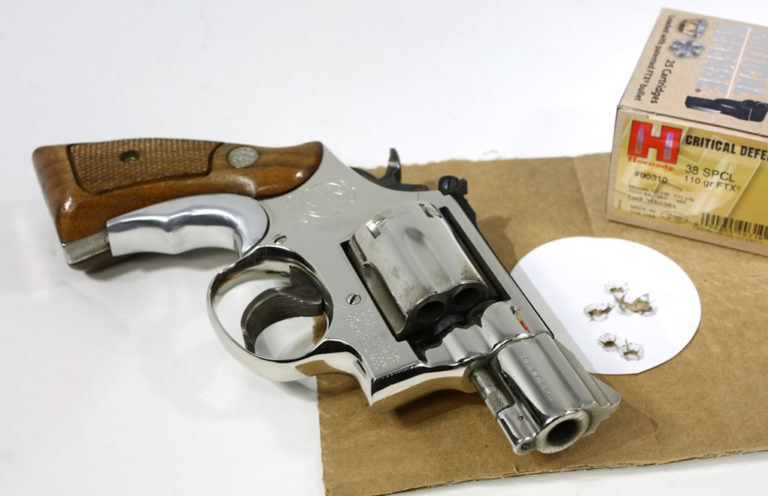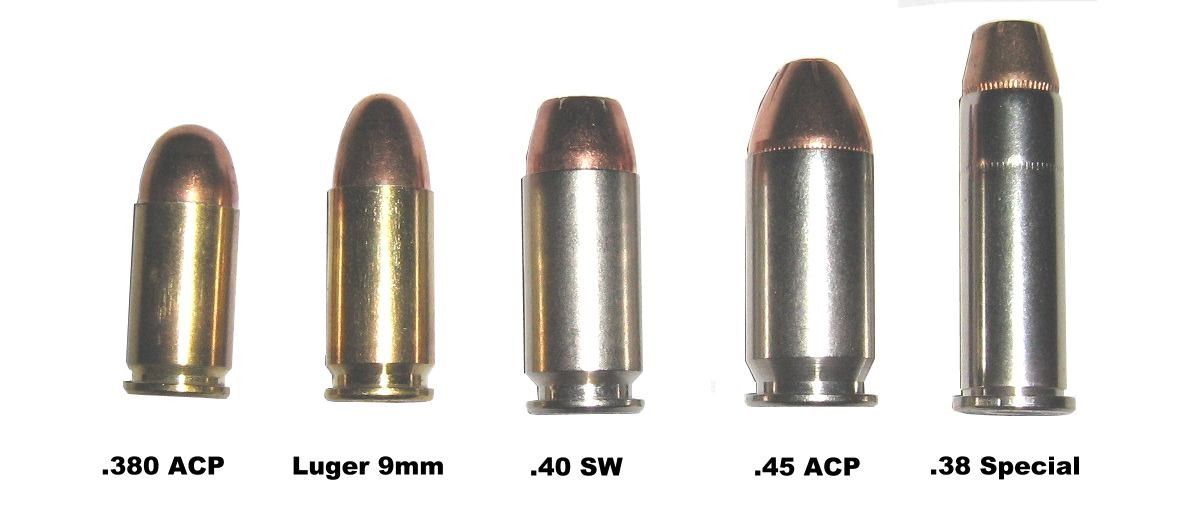
380 Auto goes, this is very good performance. 380 Punch load deformed with a frontal diameter 1.4 times its original diameter and penetrated to 10 inches. This level of performance is comparable to what you’d expect from other more expensive loads that perform well on all aspects of the FBI testing protocol, when they’re fired through heavy clothing. 45 Auto loads expanded to about 1.5 times their original diameter and penetrated between 14 and 15 inches. The results from my test were very promising-promising enough to convince me this ammunition has been well designed for the purpose it’s intended for, and that’s to provide civilians with a less expensive and very capable self-defense handgun load. This is partly because I don’t work for the FBI, and partly because the FBI and their comprehensive testing isn’t the final word on the terminal performance of defensive handgun ammunition. I conducted some expansion and penetration tests with the 380 Auto, 9mm Luger and. This all sounds fascinating, but the question is: Does it work? Based on my testing, it would appear so. 380 Vs 9mm: Reasons To Consider The Small ‘Nine’ Instead of building a single bullet design for each cartridge, one that would perform well on all types of intermediate barriers, Federal crafted bullets that would work exceptionally well on the barrier most civilian shooters might encounter during a self-defense shooting. We then played with thickness of the jacket, skive depth, hollow-point geometry and differences in lead cores to build the Punch recipe.” We selected whatever elements worked best for each individual caliber.

Since the bullets weren’t specifically designed to perform in FBI protocol testing, Federal spent time tuning each Punch load to meet the primary needs of the self-defense shooter-namely expansion and penetration.Ĭhris Laack, Federal’s handgun ammunition product manager, said, “We looked at specifications from our Hydra-Shok Deep, HST and other bullet designs, and we took what made sense for Punch. Rather than developing a single bullet design for all of the different Punch loads, the team at Federal evaluated each cartridge individually to determine which bullet design and weight would work most effectively. A 20-round box of 9mm Federal Hydra-Shock ammo has a suggested retail price of $24.99. The result is a new line of self-defense ammunition called “Punch.” A 20-round box of 9mm Punch ammo has a suggested retail price of $15.99. And they felt that they could do this and offer the ammunition at a substantial savings to the consumer. They felt they could create loads for defensive handguns that would perform exceptionally well when fired through heavy clothing, which is the most common intermediate barrier civilians encounter. The engineers at Federal have a tremendous amount of experience when it comes to building good defensive handgun ammunition, and they realized that civilians don’t necessarily need FBI duty ammunition. It’s possible that a civilian might need to shoot through steel, plywood, wallboard and automotive safety glass in order to save their life-but it’s not likely.

Not only is the conduct of the extensive testing expensive, but so, too, is the engineering and building of the bullets that’ll perform well in them. However, building bullets to meet this standard is expensive. And, as law enforcement agencies adopt loads based on their performance in this test, so too do civilians the general population likes to be equipped as well as the cops. This testing protocol has driven the manufacture of defensive handgun ammunition for the last 30 years, and manufacturers have become really good at building bullets to meet the FBI standard. 45 Auto self-defense load can pack-pardon the pun-quite a punch. Paired with a compact 1911 like the Remington R1 Ultralight Executive, the new. The best performing bullets in this test tend to expand to 1.5 times their original diameter and penetrate to between 12 and 18 inches, regardless of the intermediate barrier. This test assesses a bullet’s ability to inflict an effective wound after defeating various intervening obstacles commonly present in law enforcement shootings, like steel, plywood, wallboard and automotive safety glass. Most of the really good defensive handgun loads on the market have one thing in common-they were designed to perform well in the Federal Bureau of Investigation’s testing protocol. Through this barrier, the ammunition provided adequate expansion and penetration.It's engineered to perform exceptionally well through heavy clothing.Given the testing and engineering to meet these standards are cut out, the ammunition cost considerably less.Ammunition is not designed to meet FBI barrier standards.How Does Punch Differ From Other Defensive Ammunition:

Designed specifically for civilian defensive shooters, Federal Punch cuts costs of defensive ammo, but not at the expense of performance.


 0 kommentar(er)
0 kommentar(er)
